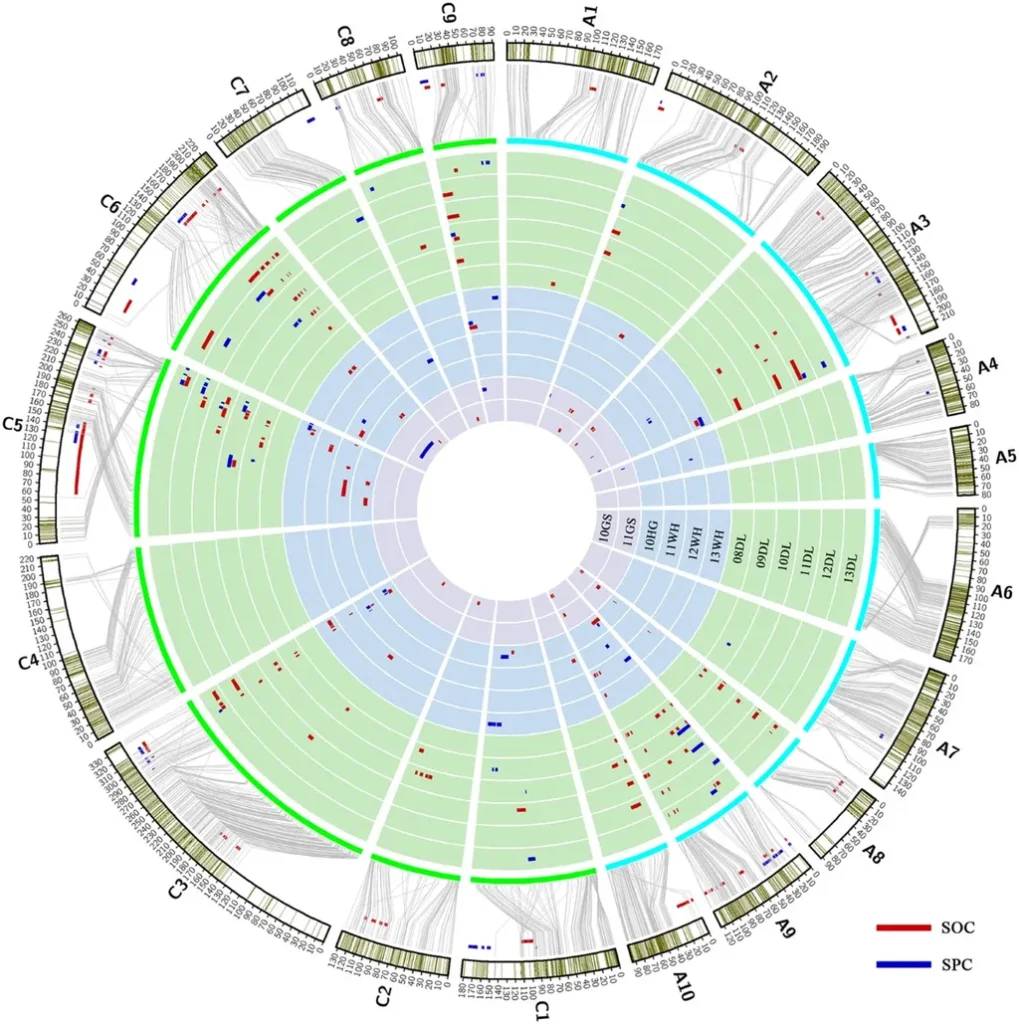In the heart of Shaanxi, China, researchers at the Northwest A&F University have uncovered a significant breakthrough that could reshape our understanding of seed oil accumulation in plants. Led by Zijin Liu from the State Key Laboratory for Crop Stress Resistance and High-Efficiency Production, the team has identified a crucial interaction between two transcription factors, bHLH7 and PDF2, that could have profound implications for the energy sector.
Seed oil is a vital resource, not just for the food industry but also for biofuel production. The ability to enhance oil accumulation in seeds could significantly boost the yield of biofuels, providing a more sustainable and renewable energy source. The research, published in Plant Communications (translated as Plant Communications), sheds light on how these transcription factors work together to regulate oil accumulation.
“Seed oil accumulation is a complex process that requires precise coordination of multiple factors,” explains Liu. “Our study reveals that bHLH7 and PDF2, both highly expressed in developing embryos, play a pivotal role in this process. They physically interact and cooperatively inhibit the transcription of key genes involved in oil accumulation.”
The team discovered that bHLH7 and PDF2 directly bind to the promoters of several genes, including MYB96, PDH-E1β1, PDH-E1β2, and BCCP1, thereby inhibiting their transcription. This finding is a significant step forward in understanding the transcriptional network associated with seed oil accumulation.
“Additional genetic evidence demonstrated that bHLH7 and PDF2 act in an additive manner to repress seed oil accumulation,” Liu continues. “This effect is partially dependent on PDH-E1β1, which significantly promotes seed oil deposition. Our results provide insights into the mechanisms by which the bHLH7–PDF2 module mediates transcriptional regulation to control oil accumulation in Arabidopsis thaliana seeds.”
The implications of this research extend beyond the laboratory. By understanding how these transcription factors regulate oil accumulation, scientists can potentially develop crops with higher oil yields. This could be a game-changer for the biofuel industry, offering a more sustainable and efficient source of energy.
As we face the challenges of climate change and the need for renewable energy sources, this research offers a glimmer of hope. It highlights the importance of fundamental plant science in addressing global issues and paves the way for future developments in the field.
In the words of Liu, “This is just the beginning. Our findings open up new avenues for research and could lead to the development of crops with enhanced oil accumulation, benefiting both the food and energy sectors.”
The study, published in Plant Communications, not only advances our scientific understanding but also brings us one step closer to a more sustainable future. As we continue to explore the intricate world of plant biology, the possibilities for innovation and discovery are endless.

